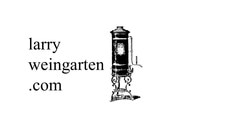 Rather a long time ago, I was telling my Mom that I was going to “do ceramics”. I really liked it so thought it should be my career. She didn’t answer with “you idiot” or anything along those lines. She was after all, an art major herself in college. She just replied with a question; “Will you make enough to live on?” Well, I didn’t know, so I started to research it. It became clear that only a very few people ever are able to support themselves by doing art and the pieces of art that get the big bucks usually have creators that are long dead. It looked like it would take five to ten years to make it work… if I were actually good at it! Ultimately I found that I was good at fixing things and that was a much more marketable skill. My Mom had asked a very good, life altering question. The questions we ask, and assumptions we make, in part dictate the responses we’ll get. When most plumbers walk up to a ten year old water heater, they will likely say, “It’s ten years old and could leak any time. Better replace it before it does any damage”. When I walk up to that heater, I say, “Let’s check out the heater and see if it has any life left in it”. Maintenance can easily give you five times the normal life of a water heater, so the yearly cost is roughly one fifth of what it would have been. Another example is the solar salesman, selling photovoltaic systems. If he just asks “How much power do you use?” The solar system will be sized according to your present power consumption. If he asks “How efficient can we make your home first?” Then you might only need a solar system 20% as big as it would have been. That’s a big savings, but not really in the interests of the salesman who likely is making a commission on sales. Asking good questions feels like an art form, difficult to pin down just what goes into creating those good ones. Two ideas come to mind for doing it right. First is to be looking out for the well-being of the person you’re asking. Say you know someone who gets emotional and he or she wants to cut someone off at the knees for doing something thoughtless. A question to ask them, “Will that be useful?” Yes they’ll miss the short term pleasure of revenge, but not miss wishing they could control their temper! Second is to remove yourself emotionally from the situation, so you can give a clear and balanced perspective. Imagine some longstanding discomfort between a parent and their child. That’s a difficult one to deal with as the ruts have become so deep. But, asking how either side might behave differently if it were a friend and not a relative they were talking to, might open the way towards a kinder, more fruitful dialogue. It’s sometimes easier to be nice to someone you’ve never met than a blood relative. It’s hard to come up with that different perspective if you’re entangled in swirling emotions and habits. Good communication takes practice and effort. It takes putting yourself firmly in the other’s shoes. A quick text or email has it’s place, but research has shown that the amount of info communicated these ways is roughly one tenth of the info we get from a face to face conversation. Just imagine the difference between getting a marriage proposal in person or by text! If the message is important, delivering it in person will give you the best chance of getting it across clearly. Asking good questions truly is an important part of good communication. Yours, Larry
1 Comment
Leave a Reply. |
Larry Weingarten
Looking back over my working life of 50+ years, it seems clear that self sufficiency has always been the best way for me to be useful. Now, mix in a strong interest in water in its many forms and the wide world of animals and you'll know what's important to me. Archives
January 2023
Categories |
Copyright © 2014 - 2023
All Rights Reserved
All Rights Reserved



 RSS Feed
RSS Feed